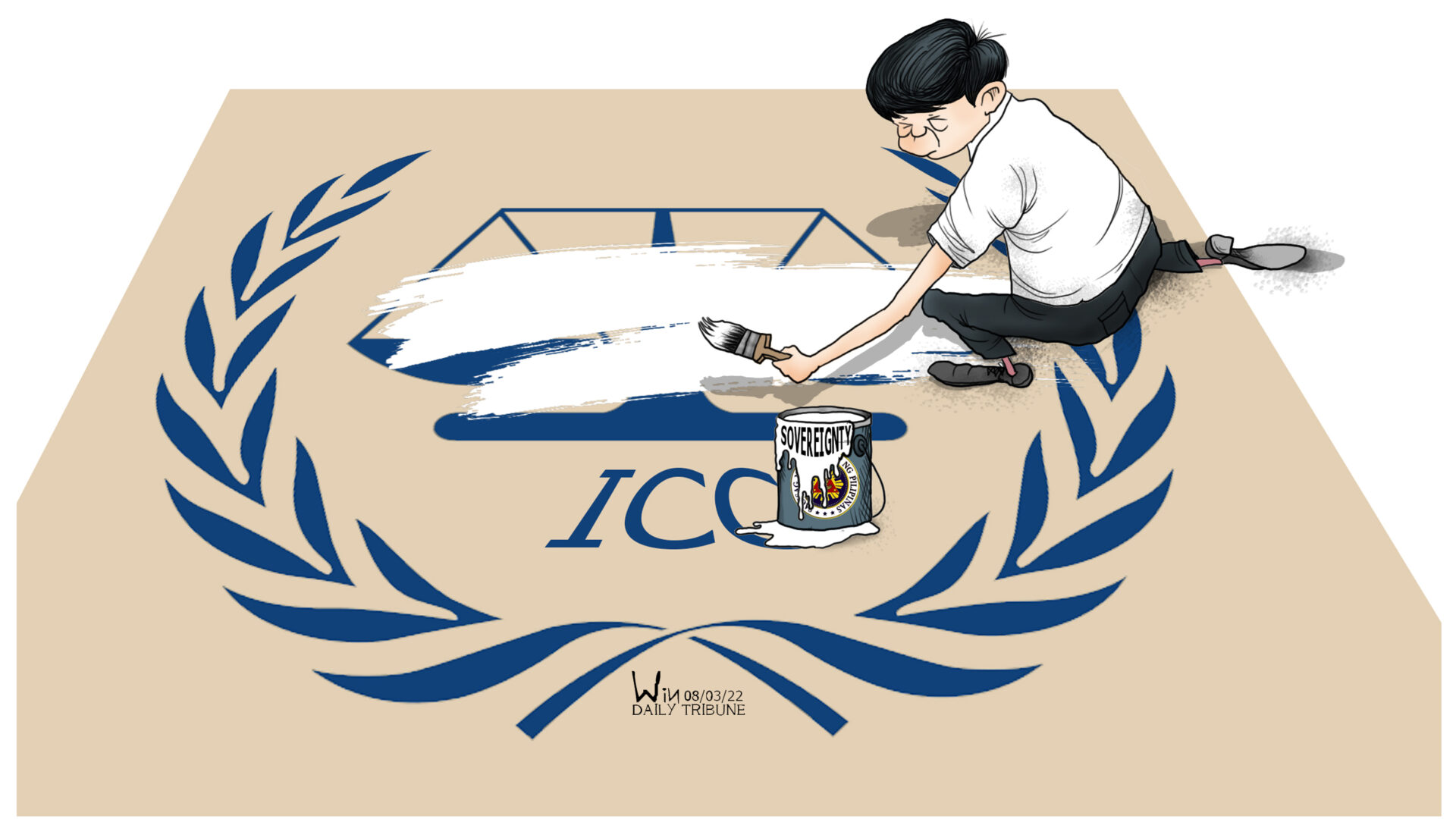President Ferdinand “Bongbong” Marcos Jr. had the benefit of the best legal minds available in establishing his administration’s position of not rejoining the International Criminal Court (ICC), which has become a willing tool of the global movement of hypocrisy.
Former president Rodrigo Duterte pulled the country out of the Rome Statute, which created the tribunal, after accusing it of meddling in the country when it proceeded with the investigation of the war on drugs based on the partisan complaint filed by the camp of destabilizer Antonio Trillanes IV.
Among those who helped Mr. Marcos to take the position to keep out of the increasingly discredited court were Chief Presidential Legal Adviser Juan Ponce Enrile, Executive Secretary Victor Rodriguez, Solicitor General Menardo Guevarra, Foreign Affairs Secretary Enrique Manalo, Justice Secretary Jesus Crispin Remulla and lawyer Harry Roque.
Roque, who is in the list of counsels of the ICC due to his competence in international criminal law, acted as BBM’s private counsel.
The decision on the Philippine status in relation to the ICC is crucial amid the 8 September deadline given on the findings of the Philippine government that Prosecutor Karim Khan required as part of his decision to resume the preliminary investigation on the drug war in the Philippines.
Compliance required from the government is the submission of observations on the findings of the prosecutor, Roque revealed.
He added that former president Duterte is not the subject, yet, of the preliminary ICC investigation, which has to do with the war on drugs campaign during his term.
Trillanes’ lawyer Jude Sabio used a bloated 30,000 extrajudicial deaths to shock and awe the ICC into accepting the largely biased complaint. It was later found that the number was culled by totaling all the deaths resulting from a crime reported to the police from the start of the Duterte administration.
Roque clarified that there has not been any individual named as being the subject of the ICC investigation.
Key to the decision to stay clear of the ICC was the principle of complementarity that the tribunal should come to terms with by proving the inability or unwillingness of the state to prosecute.
Roque maintained the Philippines has a working legal system and the ability to prosecute individuals of crimes within the cognizance of the ICC.
“I don’t think any Filipino lawyer would acknowledge that we don’t have a functioning government and legal system in the Philippines. We have never agreed, in joining the ICC, to surrender our jurisdiction to the court,” Roque said.
“The ratification of the ICC was one of the accomplishments that I’m very proud of because I was the chairperson of the convenor of the Coalition for ICC when we acceded, but the reason for the Philippines to withdraw was justified,” he added.
For Roque, withdrawal was the correct decision because the prosecutor violated the very basis by which he adhered to be bound by, which is the court’s own statute. The Philippines, he maintained, has never surrendered its primary jurisdiction to prosecute crimes.
“No other country in Asia will agree to be an ICC member if the court will ignore sovereignty in pursuing the case against the Philippines,” according to Roque.
In the same token, no self-respecting nation would agree to have its sovereignty trampled on by a foreign entity no matter the reputation attached to it.
